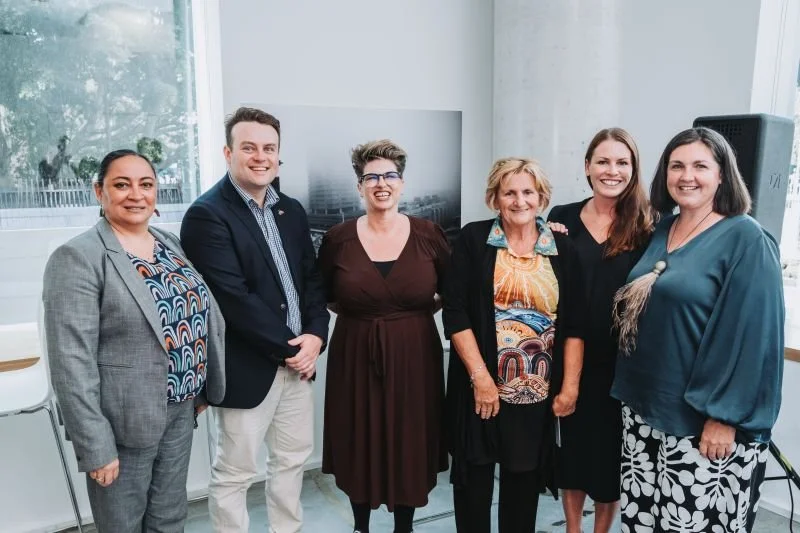Driving change: Violet Co supports the new Centre for Indigenous People and Work
UTS Jumbunna Institute for Indigenous Education and Research and the UTS Business School have launched the Centre for Indigenous People and Work, with our Principal Solicitor and Director, Karen Iles, joining the Advisory Board.
For far too long, the “Indigenous employment narrative” has been “owned and perpetuated by those who would seek to divide this place,” says Professor Nareen Young, Director of the Centre for Indigenous People and Work.
On May 7, Professor Young and Assistant Director, Joshua Gilbert, launched the Centre for Indigenous People and Work (CIPW), alongside Indigenous leaders and business experts, to tackle the systemic barriers faced by Indigenous Australians in the employment industry, including racism, underemployment, and exclusion from leadership roles.
CIPW is a self-determined, joint initiative of the UTS Jumbunna Institute for Indigenous Education and Research and the UTS Business School. Centered on Indigenous industry-based leadership and lived experience, CIPW drives change in employment systems by delivering research, strategy, and reform to workplace practices to national policy. Its work challenges the status quo and builds pathways to equity, dignity, and leadership for Indigenous workers.
Professor Young and Mr Gilbert launched the Centre together - the culmination of their work over the last five years challenging the narrative of Indigenous employment.
From left to right: Aboriginal and Torres Strait Islander Social Justice Commissioner Katie Kiss, Josh Gilbert, Professor Nareen Young, Aunty Glendra Stubbs, Karen Iles and Jocelyn King.
The launch began with a Welcome to Country by Aunty Glendra Stubbs, opening remarks by Professor Young and an address by Aboriginal and Torres Strait Islander Social Justice Commissioner Katie Kiss from the Australian Human Rights Commission (AHRC).
In her opening remarks, Professor Young addressed the “persistent narrative of Aboriginal people as 'unemployed, unemployable, and only fit for low skill low pay jobs,' - a myth that neatly reinforces populist political narratives and divides us.” She highlighted the external control of this narrative, and the colonial prejudices it reinforces in contemporary so-called Australia through underemployment, the exclusion of Indigenous people from leadership positions and even some shocking instances of Aboriginal people not being paid their earned wages or superannuation.
That is what CIPW is designed to tackle. In committing to using Indigenous research methodology and embodying cultural principles of listening deeply and respectfully to Indigenous Peoples, CIPW aims to drive policy formulation, law reform and workplace-based solutions for and by Indigenous workers.
Karen Iles, has joined CIPW as a member of the external Indigenous Advisory Council, and was panelist in the Panel Conversation at the launch event. Alongside Jocelyn King, a Bundjalung woman and chairperson at First Australians Capital, and Trent Wallace, a Wongaibon man and the Head of First Nations Strategy at Ashurst, the panel explored critical issues of self-determination and the importance of “reclaiming the Indigenous employment narrative.”
Karen has joined CIPW as the founder of the only Indigenous owned and led legal practice in Australia that has a focus on workplace and employment law, and provides a unique insight into the realities of employment as an Aboriginal woman. This comes as Karen has also been appointed as Adjunct Professor of Practice in the University of Newcastle’s School of Law and Justice. Karen’s presence on both the launch panel and the Advisory Council underscores her commitment and expertise in driving the Centre's objectives forward to create meaningful change for Indigenous workers.
The Centre for Indigenous People and Work represents a powerful step towards a future where Indigenous voices are at the forefront of their own employment narrative, ensuring dignity, purpose, and fairness in work for all Indigenous people across Australia.


